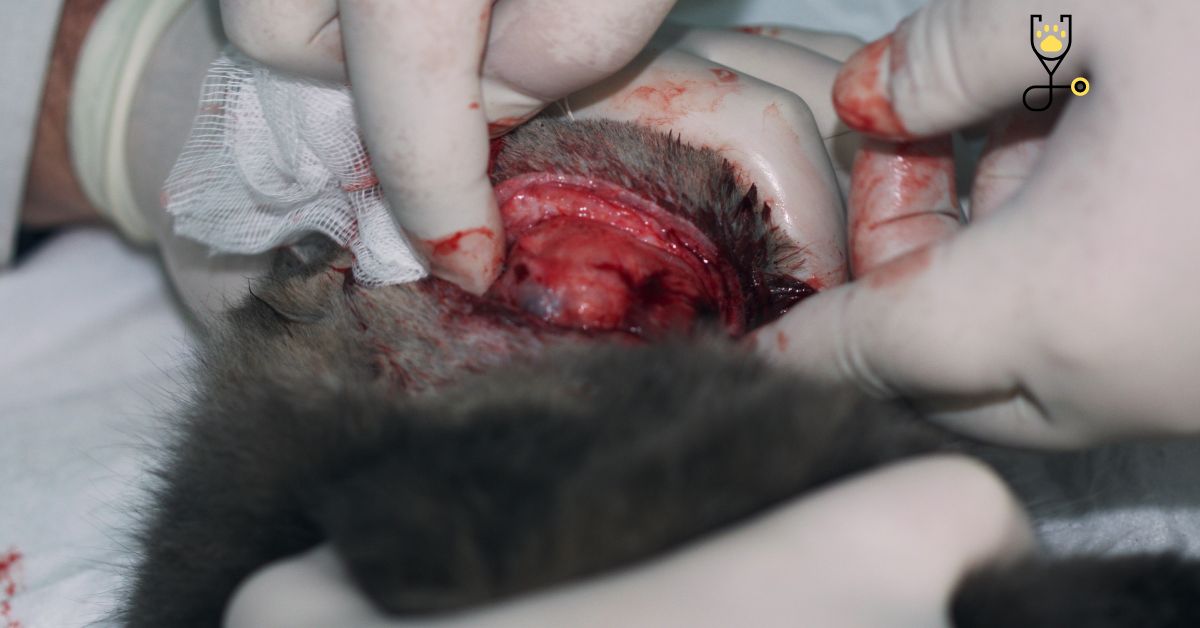Kittens are adorable, playful creatures that can bring a lot of joy to their owners. However, it’s important to be aware of the potential health problems and risks associated with owning a kitten. One serious health issue that kittens can face is brain tumors. In this blog post, we’ll discuss the causes, treatment, and prevention of brain tumors in kittens. Keep reading for more information!
What are Brain tumors in kittens?
A brain tumor is a mass or growth of abnormal cells in the brain. Brain tumors can be either benign (non-cancerous) or malignant (cancerous). Benign tumors tend to grow slowly and are not usually life-threatening. Malignant tumors, on the other hand, grow quickly and can spread to other parts of the body. Brain tumors can occur in any breed of cat, but they are more common in certain breeds, such as Siamese and Himalayan cats.
Signs and Symptoms of Brain Tumors in Kittens
The signs and symptoms of brain tumors depend on the size and location of the tumor. Common signs and symptoms include:

1. Seizures: Seizures are the most common symptom of brain tumors in kittens. Seizures can range from mild to severe and may happen suddenly or gradually.
2. neurological deficits: Neurological deficits refer to any changes in the way the nervous system functions. These changes can be due to damage to the brain or spinal cord. Common neurological deficits include weakness, paralysis, and loss of balance.
3. Behavior changes: Brain tumors can cause changes in a kitten’s behavior. These changes can include aggression, lethargy, depression, and changes in appetite.
4. Head tilt: Head tilt is a condition in which the head is tilted to one side. This can be due to damage to the nerves that control the muscles of the head and neck.
5. circling: Circling is a condition in which a kitten walks in circles. This can be due to damage to the part of the brain that controls movement.
6. Vision problems: Brain tumors can cause vision problems, such as blindness.
Causes of Brain Tumors in Kittens
The exact cause of brain tumors is unknown, but there are several risk factors that have been associated with the development of these tumors. These risk factors include:
1. Exposure to certain toxins: Kittens who are exposed to certain toxins, such as pesticides, may be at increased risk for developing brain tumors.
2. Viral infections: Viral infections, such as feline leukemia virus (FeLV) and feline immunodeficiency virus (FIV), have been linked to the development of brain tumors.
3. Genetic factors: There is some evidence to suggest that certain genetic factors may predispose kittens to develop brain tumors.

4. Old age: Brain tumors are more common in older cats, although they can occur at any age.
5. Male gender: Male kittens are slightly more likely to develop brain tumors than female kittens.
Treatment of Brain Tumors in Kittens
The treatment of brain tumors depends on the type, size, and location of the tumor. Treatment options include:
1. Surgery: Surgery is the most common treatment for brain tumors. The goal of surgery is to remove the entire tumor. This may not be possible in all cases, but even partial removal can be beneficial.
2. Radiation therapy: Radiation therapy uses high-energy beams to kill cancer cells. It is often used in conjunction with surgery.
3. Chemotherapy: Chemotherapy uses drugs to kill cancer cells. It is often used in conjunction with surgery and/or radiation therapy.
4. Supportive care: Supportive care refers to any treatment that is used to help the kitten cope with the symptoms of the tumor. This may include pain medication, anti-seizure medication, and nutritional support.
Preventions of Brain Tumors in Kittens
There is no guaranteed way to prevent brain tumors in kittens, but there are some things that you can do to reduce the risk. These include:
1. Avoid exposure to toxins: Keep your kitten away from pesticides and other harmful chemicals.
2. Get your kitten vaccinated: Vaccinations can help protect your kitten from viral infections, such as FeLV and FIV, which have been linked to brain tumors.
3. Choose a healthy breed: Some breeds of cats are more likely to develop brain tumors than others. When choosing a kitten, ask the breeder about the health history of the parents and grandparents.
4. Have your kitten spayed or neutered: Spaying or neutering your kitten can help reduce the risk of certain types of tumors, including brain tumors.
5. Keep your kitten healthy: A healthy lifestyle can help reduce the risk of all types of tumors, including brain tumors. Feed your kitten a nutritious diet and provide plenty of exercises. Regular checkups with your veterinarian are also important.

Diagnosing Brain Tumors in Kittens
If your kitten is displaying any of the signs of a brain tumor, it is important to take him or her to the veterinarian as soon as possible. Diagnosis begins with a physical examination and a review of your kitten’s medical history. Your veterinarian will then order one or more of the following tests:
1. Imaging studies: Imaging studies, such as x-rays, CT scans, and MRI scans, can be helpful in diagnosing brain tumors.
2. Biopsy: A biopsy is the removal of a small piece of tissue for examination under a microscope. This is the only way to definitively diagnose a brain tumor.
3. Blood tests: Blood tests may be performed to look for evidence of infections or other conditions that can cause symptoms similar to those of a brain tumor.
4. Cerebrospinal fluid analysis: Cerebrospinal fluid (CSF) is the fluid that surrounds the brain and spinal cord. An analysis of the CSF may be performed to look for evidence of a brain tumor.
5. Neurological examination: A neurological examination may be performed to assess your kitten’s mental status, vision, and level of consciousness.
After the diagnosis of a brain tumor has been made, your veterinarian will work with you to develop a treatment plan. This will likely involve a referral to a specialist.
Conclusion
Brain tumors are relatively rare in kittens, but they can occur. If your kitten is displaying any of the signs of a brain tumor, it is important to take him or her to the veterinarian as soon as possible. With prompt diagnosis and treatment, many kittens with brain tumors can go on to lead happy and healthy lives.
Frequently Asked Questions
1. What are the signs of a brain tumor in kittens?
The most common sign of a brain tumor in kittens is a seizure. Other signs may include blindness, circling, head tilt, head pressing, lack of coordination, and behavior changes.
2. How are brain tumors diagnosed in kittens?
Brain tumors are typically diagnosed with imaging studies, such as x-rays, CT scans, and MRI scans. A biopsy may also be performed to confirm the diagnosis.
3. How are brain tumors treated in kittens?
Brain tumors are typically treated with surgery, radiation therapy, or chemotherapy. Supportive care is also important in helping the kitten cope with the symptoms of the tumor.
4. Can brain tumors be prevented in kittens?
There is no guaranteed way to prevent brain tumors in kittens, but there are some things that you can do to reduce the risk. These include avoiding exposure to toxins, getting your kitten vaccinated, choosing a healthy breed, having your kitten spayed or neutered, and keeping your kitten healthy.
5. What is the prognosis for kittens with brain tumors?
The prognosis for kittens with brain tumors is variable and depends on the type of tumor, the severity of the symptoms, and the response to treatment. With prompt diagnosis and treatment, many kittens can go on to lead happy and healthy lives.







